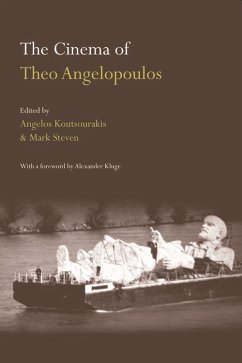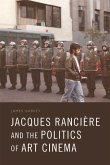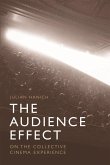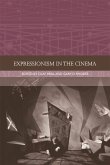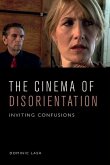'Theo Angelopoulos is the cinema's great untimely director: always restlessly mixing historical periods, political contexts, geographic locations. Today, not long after his death, his films urgently call to us from their era: fifty glorious years of innovative, modernist experimentation put in the service of both mythic poetry and engaged social critique. This superb book, which approaches the director from every conceivable angle from the scholarly to the personal, and also includes fond tributes from fellow filmmakers, at last takes the measure of Angelopoulos' artistic greatness and his immense, enduring significance.' Adrian Martin, Monash University The Cinema of Theo Angelopoulos is the first comprehensive assessment of one of the leading figures of modernist art cinema. Assessing his complete works, this groundbreaking collection brings together a team of internationally regarded experts and emerging scholars from multiple disciplines to provide a definitive account of Angelopoulos' formal reactions to the historical events that determined life during the twentieth and early twenty-first centuries. Refusing to restrict its approach to the confines of the Greek national film industry, the book approaches his work as representative of modernism more generally, and in particular of the modernist imperative to document its allusive historical objects through artistic innovation. Retrospective in nature, The Cinema of Theo Angelopoulos argues that the director's films are not simply emblems of a bygone historical and cultural era or abstract exercises in artistic style, but are also foreshadowing documents that speak to the political complexities and economic contradictions of the present. Angelos Koutsourakis is a Post-Doctoral Research Fellow at the University of Queensland. He is also the author of Politics as Form in Lars von Trier (2013). Mark Steven is a Research Fellow at the University of New South Wales. He has published on literature, film and philosophy, including the co-edited Styles of Extinction: Cormac McCarthy's The Road (2012). Cover image: Ulysses' Gaze (To Vlemma tou Odissea) 1995 © Theo Angelopoulos Cover design: Clifford Hayes [EUP logo] www.euppublishing.com
Hinweis: Dieser Artikel kann nur an eine deutsche Lieferadresse ausgeliefert werden.
Hinweis: Dieser Artikel kann nur an eine deutsche Lieferadresse ausgeliefert werden.

